9F, Zhongrui Jumei Building, 68 Jiuzhang Road, Suzhou Industrial Park, Jiangsu Province
Company News
The first Mayo China Hospital Management Summit concluded successfully
From April 21 to 22, Ms. Wu Qiuting, Chairman of EVO Medical, was invited by Mayo Medical Group to participate in the first Mayo China Hospital Management Summit. The first Mayo China Hospital Management Summit, supported by Mayo Medical Group, China Hospital Association, and Huimei Medical Group, was held in Beijing
The picture shows the scene of the Mayo China Hospital Management Summit
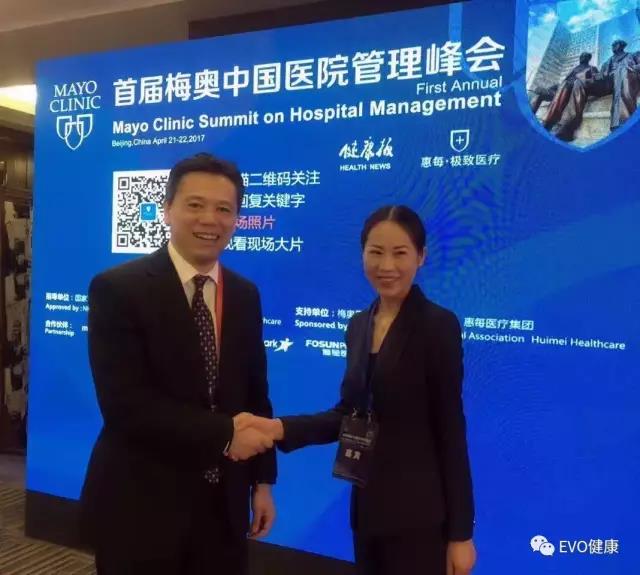
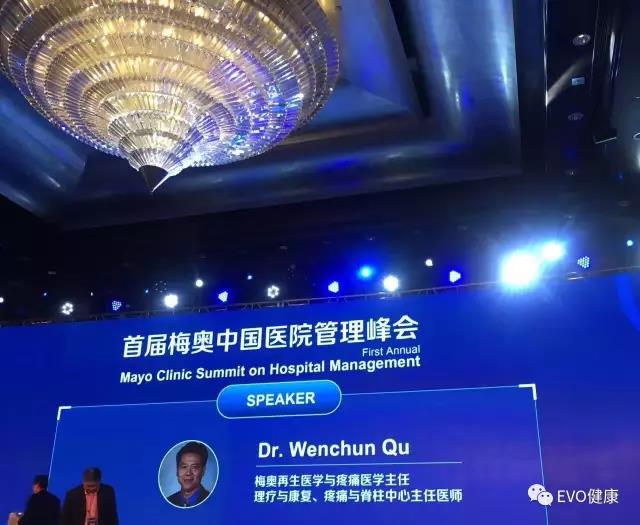
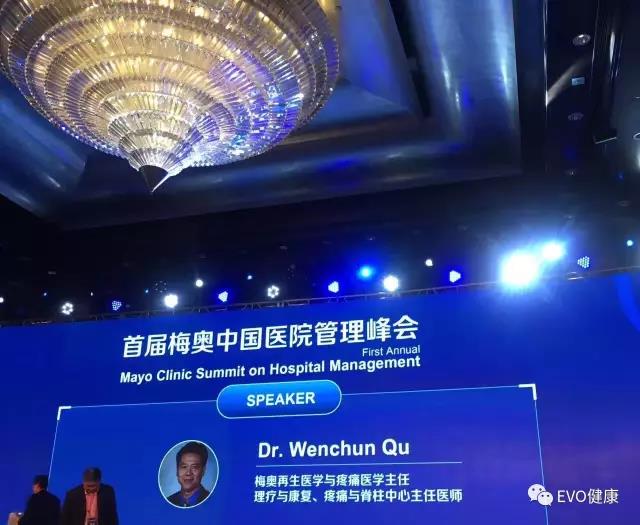
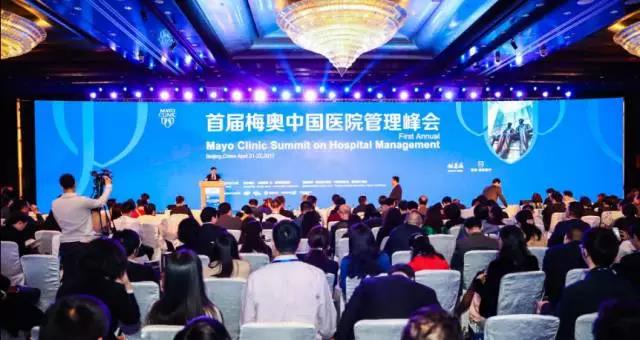
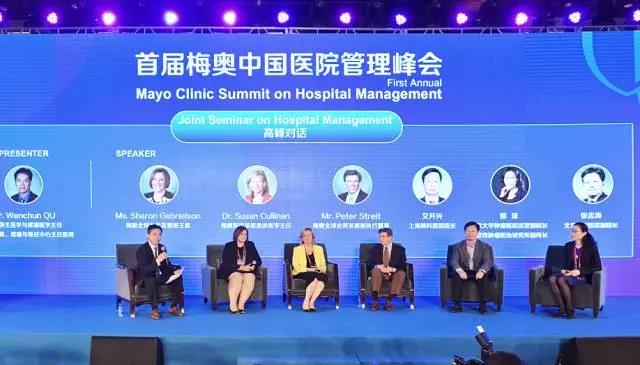
This summit is the first time Mayo Medical Group has dispatched a
large-scale lecturer team to share its mature models and successful experiences
in core links such as brand building, medical model, hospital management,
world-class hospital IT systems, and patient services with Chinese hospital
managers
Improving hospital management requires precise "drip irrigation"
At the first Mayo China Hospital Management Summit held on April 21-22, hospital managers from China and the United States shared their accumulated experiences in improving the medical experience, improving service quality, strengthening medical safety, and improving patient satisfaction, demonstrating the value and charm of hospital management. These time-tested "secrets" will help public hospitals seize the key and avoid detours in the process of moving towards refined management
Patient benefit is the only consideration
"The best interests of patients are the only interests we need to consider." More than 100 years ago, Dr. William James Mayo's words have been guiding Mayo culture today. Sharon Gabrielson, Chairman of Mayo Global Business Development, said Mayo's vision is to provide patients with an unparalleled patient experience and become their most trusted medical partner
"When patients experience failure, recovery is very important. This can turn an dissatisfied patient into a fan!" Sharon Gabrielson said that Mayo's successful recovery of patients benefits from timely listening, sympathizing, understanding, and solving problems after receiving complaints. This also makes 95% of patients who complain about Mayo continue to choose Mayo "Complaints are just the tip of the iceberg. After a failed medical experience, only 4% of patients will choose to complain, while the other 96% will not, but will leave us and tell another 25 people about their bad experiences. Therefore, patient complaints should be seen as a 'gift', which allows us to obtain a large amount of information that can be used to improve services."
Peter Streit, Executive Director of Mayo Global Business Development, said that Mayo brand boosters have a reputation for patient satisfaction, and this is not a simple matter "All Mayo staff are brand ambassadors responsible for brand management. Mayo is created in every interaction between every employee and every patient on a daily basis."
Making patients feel the temperature of the hospital is also the service pursuit of the "national team". Full appointment mode is adopted for the registration, hospitalization, surgery, and follow-up visits of elderly cataract surgery patients; Allowing patients to wear different color hospital uniforms enables medical personnel to have a clear understanding of the patient's surgical information at a glance; Let doctors experience the pain of non-invasive ventilation technology and inserting gastric tubes, and pay more attention to patients' feelings and psychological needs; These measures to improve the medical experience have been implemented in the Third Hospital of Peking University. Jin Changxiao, the secretary of the Party Committee of the hospital, said that allowing patients to receive diagnosis and treatment with pleasure and dignity should become a hospital's service method. To this end, hospitals must combine internal and external training, not only continuously improving the medical environment, but also improving the service process from the perspective of patient experience; It is important to provide emotional care to patients while also allowing them to respond promptly when they need help
Hold the lifeline of medical quality
Whether a hospital can win the trust of patients depends on medical quality. Liu Limin, Party Secretary of Shao Yifu Hospital affiliated to Zhejiang University Medical College, said that continuously strengthening medical quality and safety management is a magic weapon of the hospital. In 1997, the hospital took the lead in proposing "no infusion in outpatient clinics", advocating the standardized use of antibiotics; Ensure "no additional beds in the entire hospital" and ensure that each inpatient receives medical services with the same conditions. At the same time, the hospital has established a quality management committee to continuously improve quality monitoring indicators, so as to continuously improve medical quality "Shaw Hospital is a medical experimental field where Chinese and Western cultures collide. The successful experience of combining the American hospital management model with China's national conditions has enabled the hospital to achieve significant social and economic benefits."
Guided by the concept of patient centered service, Tsinghua Changgeng Hospital has implemented a physician responsibility system and a fully accountable nursing care system. According to Wang Jin, the vice president of the hospital, the entire process of patient medical services is fully responsible by the same attending physician, reducing risks between shifts and cultivating long-term trust between doctors and patients; The fully responsible nursing staff is equivalent to the patient's spokesperson, responsible for the planning and implementation of all nursing activities for the patient from admission to discharge, and coordinating the communication and contact between the patient and other medical personnel
Lv Yubo, Honorary President of Guangdong Provincial Hospital of Traditional Chinese Medicine, proposed that in order to achieve the eternal goal of continuous improvement of medical quality, the hospital proposed "three transformations", namely, the transformation from "end management" to "process management" based on the entire process management, from "defect management" to "risk management" based on the transformation, and from "managing affairs" to "managing people" based on the transformation. In addition to providing a methodology, the hospital also emphasizes the creation of an intangible safety culture "Only when employees reach a consensus on safety concepts and codes of conduct can hospitals have 'golden bells and iron cloth shirts' to prevent risks."
Making information a hospital asset
In the era of "Internet plus", the level of informatization has begun to become one of the core competitiveness of a hospital. Wang Yipeng, the former vice president of Peking Union Medical College Hospital, stressed that the ultimate goal of owning data and information is to create new management models and new benefits. Therefore, the hospital is committed to using data to build a decision-making simulation analysis system, and through dynamic data collection, comprehensively consider patient satisfaction, medical staff workload, and investment benefits, Optimize patient diagnosis and treatment processes and management models
This summit will draw on the health service concepts of Chinese and foreign hospitals to provide more professional, efficient, and high-quality services to domestic customers
EVO Medical
EVO Medical (China) Co., Ltd. is a Sino-foreign joint venture medical enterprise integrating precision medicine, medical training, overseas medical treatment, and technology research and development. Its headquarters are located in Suzhou, and it has established branches and offices in Beijing, Nanjing, Shanghai, Shanxi, Washington, D.C., Boston, and Saipan. The company is committed to integrating global high-quality medical resources, Create "professional, safe, personalized, lifelong" medical and health services

